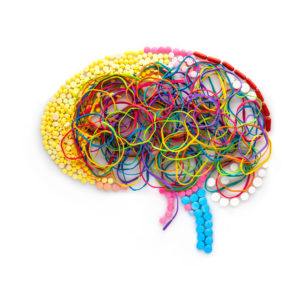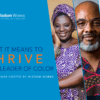 As companies, communities, and countries worldwide engage more fully in driving the wellbeing agenda, I’m intrigued by the wisdom diverse sciences and cultural traditions have to offer. I notice the young field of contemplative science has unquestionably leaned into the wellbeing conversation! Take for instance, University of Virginia’s Contemplative Sciences Center, which promotes “resilience and high quality, compassionate care while preventing burnout among nurses, doctors, and other healthcare workers,” or the Mind & Life Institute, with its mission to “build a scientific understanding of the mind as a way to reduce suffering and promote human flourishing.”
As companies, communities, and countries worldwide engage more fully in driving the wellbeing agenda, I’m intrigued by the wisdom diverse sciences and cultural traditions have to offer. I notice the young field of contemplative science has unquestionably leaned into the wellbeing conversation! Take for instance, University of Virginia’s Contemplative Sciences Center, which promotes “resilience and high quality, compassionate care while preventing burnout among nurses, doctors, and other healthcare workers,” or the Mind & Life Institute, with its mission to “build a scientific understanding of the mind as a way to reduce suffering and promote human flourishing.”
Neuroscientist, psychologist, and MIT Fellow Dr. Richard Davidson recently shared four exciting modern developments in contemplative science that are radically expanding our sense of power to affect wellbeing for ourselves and others.
- Our Brains Are Plastic. Summed up in 1928 by leading neuroscientist Santiago Ramon Y Cajal, the old story about the brain was this: “In adult centers the nerve paths are something fixed, ended, immutable. Everything may die, nothing may be regenerated.” We believed our brains were static – unchanging – and to make things worse, they only degenerated with age. Contemporary neuroscience is upending these ideas by suggesting the brain isn’t fixed; it is plastic. We shape the health, growth, and functioning of our brain everyday through our life experiences, our training, how we deal with stress, and our lifestyles. As a result, we can learn how to do so intentionally.
- What’s This Surrounding Our Genes? Convinced that the brain was preset and unchangeable, we also assumed the same about our genes. Yes, as Medical News Today puts it, “genes are a set of instructions that determine what the organism is like, its appearance, how it survives, and how it behaves in its environment.” But perhaps this definition isn’t the most powerful part of our wellbeing story. The growing field of epigenetics (“epi” = Greek for “over” or “about”) explores how the environment bathing our approximately 24,000 genes affects which genes will be expressed and how. Consider: a 2013 study showed the genetic imprint of traumatic experiences in one generation of mice lasted in the genes for at least two more generations. That same year a human study revealed eight hours of mindfulness practice correlated with a range of pro-health genetic changes.
- Your Brain and Body Are Talking – Irish novelist James Joyce once said, “Mr. Duffy lived a short distance from his body.” He describes precisely how many of us live, as if our bodies are divorced from our feelings, thoughts, and intuitions. (Replace Mr. Duffy’s name with your own to see if you and he have a bit in common!) Of course, when we reflect on this even a little we know our thoughts and feelings are always (and immediately) affecting our bodies, and visa versa. Insights from contemplative neuroscience reinforces this flow of information from brain to body (and body to brain) is underway nonstop. What might this mean? As integrated human beings (rather than poor Mr. Duffy) we have countless routes to health, healing, and wellbeing, whether through the mind (e.g. meditation, art, hypnotherapy, loving-kindness practice), body (e.g. massage, dancing, exercise), or otherwise. Any and every route we take affects us as a whole.
- Our Preference Is Goodness – Call me pollyanna, but my favorite insight from contemplative science so far comes from research done with infants. Using special eye-tracking techniques, researchers from Yale’s Infant Cognition Center showed that healthy 3-month-olds actually prefer altruistic, warmhearted, helpful encounters even though they are too young to have been taught these virtues. We may have a biological predisposition for goodness – a kindness that is part of our being and doesn’t need to be trained. While we often let our stressors drive our health and wellbeing, we can also learn to tap into a resource we already have: our innate penchant for positivity.
READ MORE





